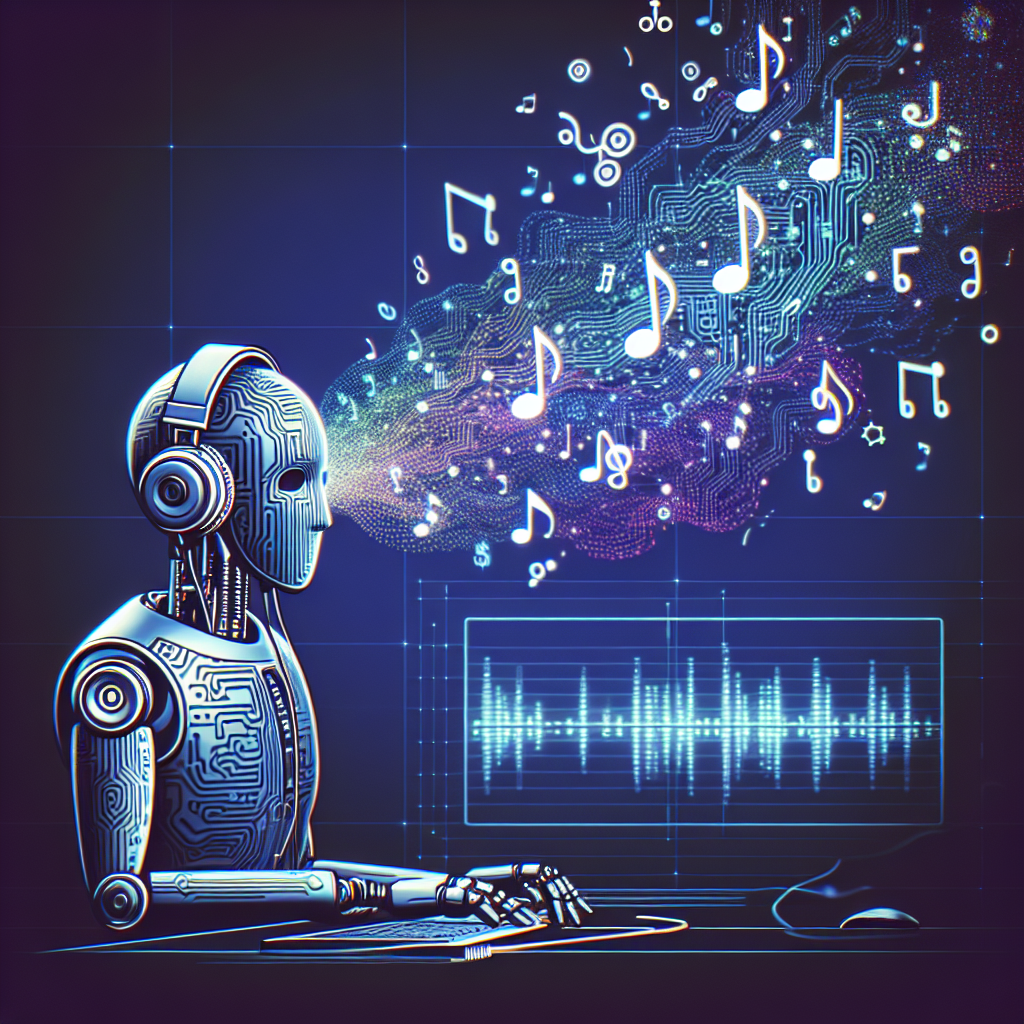Artificial Intelligence (AI) has been revolutionizing various industries, and the world of gaming is no exception. One of the most intriguing applications of AI in gaming is the generation of music and sound effects. AI-generated music and sound effects have the potential to enhance the immersive experience of players, creating a more dynamic and engaging gaming environment.
AI-generated music and sound effects are created using algorithms that analyze and mimic the patterns and structures of existing music and sound effects. These algorithms can generate new compositions and sounds that are unique and tailored to the specific needs of a game. This technology has the advantage of being able to produce high-quality music and sound effects at a fraction of the time and cost compared to traditional methods.
One of the key benefits of using AI-generated music and sound effects in games is the ability to create a more dynamic and adaptive audio experience. AI algorithms can analyze the gameplay and adjust the music and sound effects in real-time to match the mood and pace of the game. This can create a more immersive and engaging experience for players, as the audio elements of the game can respond to their actions and decisions.
Another advantage of AI-generated music and sound effects is the ability to create a large amount of content quickly and efficiently. Game developers can use AI algorithms to generate a vast library of music and sound effects, which can be easily customized and integrated into their games. This can save time and resources for developers, allowing them to focus on other aspects of game development.
AI-generated music and sound effects can also help game developers overcome the limitations of traditional music and sound production. With AI algorithms, developers can create complex and experimental compositions that would be difficult or impossible to achieve using traditional methods. This can lead to more innovative and creative audio experiences in games, pushing the boundaries of what is possible in terms of audio design.
However, there are also challenges and limitations to using AI-generated music and sound effects in games. One of the main concerns is the potential lack of human creativity and emotion in AI-generated audio. While AI algorithms can mimic patterns and structures of existing music and sound effects, they may struggle to capture the subtleties and nuances of human emotion and creativity. This can result in audio that feels artificial or lacking in depth and emotion.
Another challenge is the potential for over-reliance on AI algorithms in the creative process. While AI-generated music and sound effects can be a valuable tool for game developers, it is important to balance the use of AI with human creativity and intuition. Developers should use AI-generated audio as a starting point or inspiration, and then add their own artistic touch to create a more authentic and engaging audio experience.
In conclusion, AI-generated music and sound effects have the potential to revolutionize the gaming industry by creating more dynamic, immersive, and efficient audio experiences. While there are challenges and limitations to using AI in audio production, the benefits of AI-generated music and sound effects are clear. As technology continues to advance, we can expect to see more innovative and creative uses of AI in gaming audio, pushing the boundaries of what is possible in game design.
FAQs:
1. How does AI generate music and sound effects?
AI algorithms analyze patterns and structures of existing music and sound effects to generate new compositions and sounds.
2. What are the benefits of using AI-generated music and sound effects in games?
AI-generated audio can create a more dynamic and adaptive audio experience, save time and resources for developers, and push the boundaries of audio design in games.
3. What are the challenges of using AI-generated music and sound effects in games?
Challenges include potential lack of human creativity and emotion in AI-generated audio, and the risk of over-reliance on AI algorithms in the creative process.
4. How can game developers balance the use of AI-generated audio with human creativity?
Developers can use AI-generated audio as a starting point or inspiration, and then add their own artistic touch to create a more authentic and engaging audio experience.

